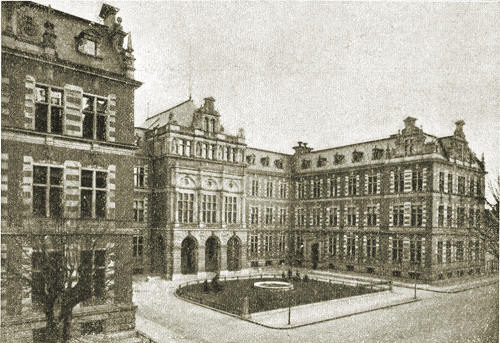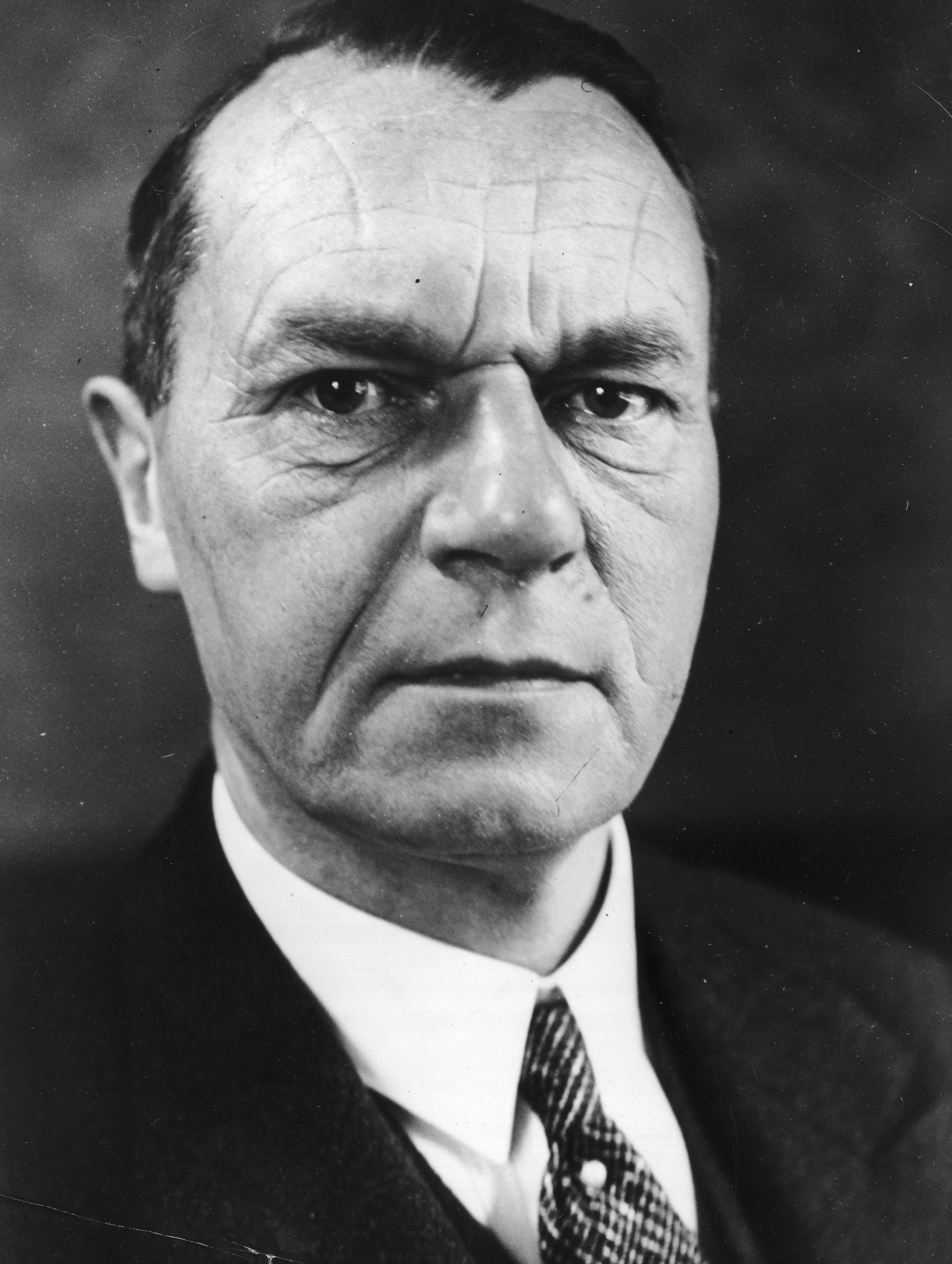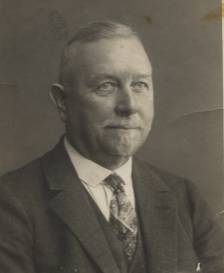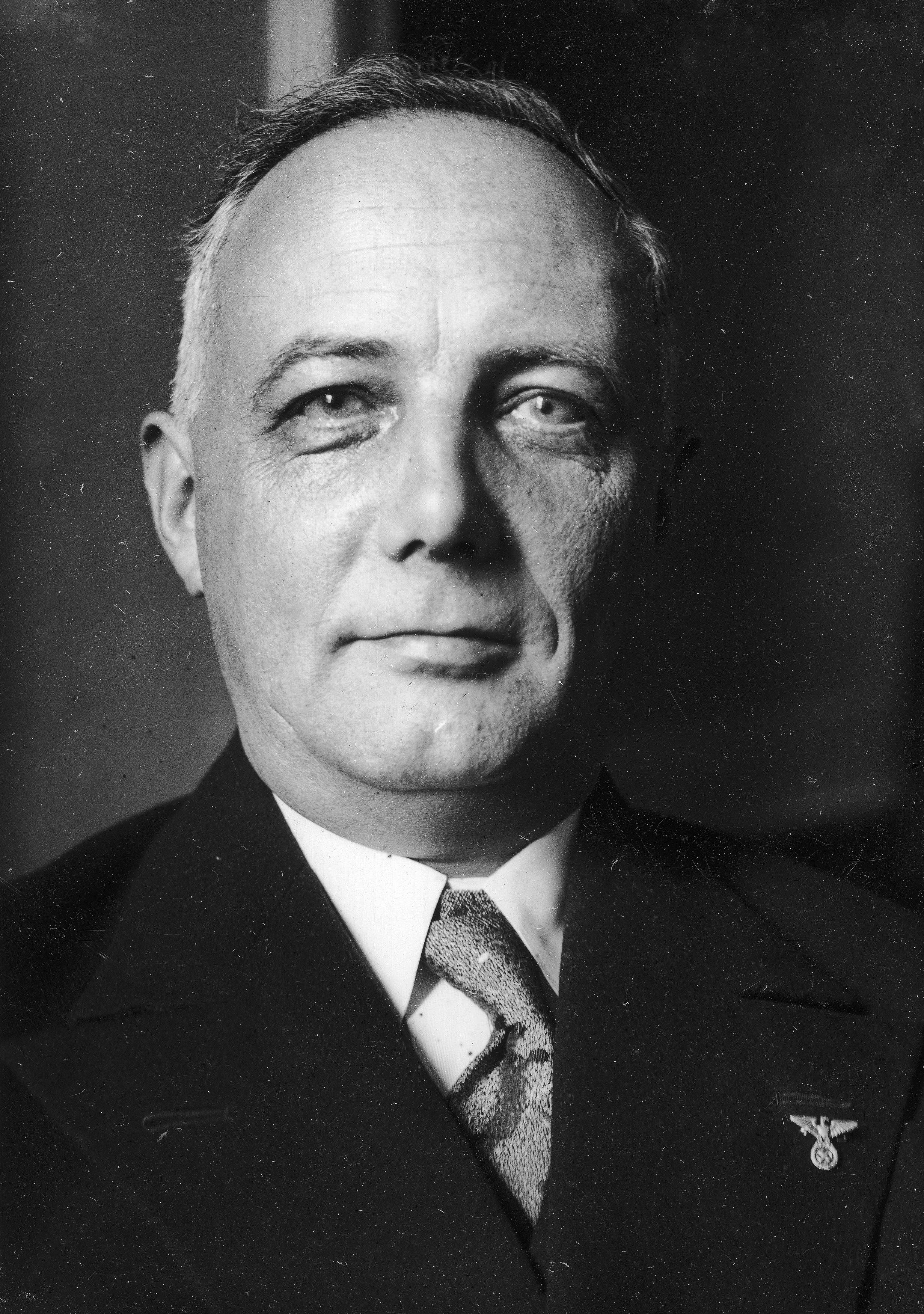Senate Of The Free City Of Danzig on:
[Wikipedia]
[Google]
[Amazon]
 The Senate of the Free City of Danzig was the government of the
The Senate of the Free City of Danzig was the government of the

 The separation of Danzig from the
The separation of Danzig from the
 After the establishment of the Free City of Danzig on November 15, 1920, the Constituent Assembly elected the members of the first senate on December 6. It was a bourgeois coalition between the
After the establishment of the Free City of Danzig on November 15, 1920, the Constituent Assembly elected the members of the first senate on December 6. It was a bourgeois coalition between the
 The rejection of the state budget of 1925 by Deputy President Ernst Ziehm led to a crisis in the government. A new senate was formed on August 19, 1925. This senate was a minority senate, made from a coalition of the
The rejection of the state budget of 1925 by Deputy President Ernst Ziehm led to a crisis in the government. A new senate was formed on August 19, 1925. This senate was a minority senate, made from a coalition of the
 In the fourth Volkstag election on November 16, 1930, neither the left or the bourgeois parties had received majorities. The
In the fourth Volkstag election on November 16, 1930, neither the left or the bourgeois parties had received majorities. The
 In the fifth Volkstag election on May 28, 1933, the NSDAP gained an absolute majority. On June 20, 1933, a senate under prominent Danzig Nazi Hermann Rauschning was elected, with only Nazis aside from two Zentrum senators. The Volkstag voted to adopt the
In the fifth Volkstag election on May 28, 1933, the NSDAP gained an absolute majority. On June 20, 1933, a senate under prominent Danzig Nazi Hermann Rauschning was elected, with only Nazis aside from two Zentrum senators. The Volkstag voted to adopt the
Free City of Danzig
The Free City of Danzig (german: Freie Stadt Danzig; pl, Wolne Miasto Gdańsk; csb, Wòlny Gard Gduńsk) was a city-state under the protection of the League of Nations between 1920 and 1939, consisting of the Baltic Sea port of Danzig (now Gda ...
from 1920 to 1939, after the Allied administration of Reginald Tower
Sir Reginald Thomas Tower (1 September 186021 January 1939) was a British diplomat whose career lasted from 1885 to 1920.Who's Who UK online
Early life
Tower was educated at Harrow School and then Trinity College, Cambridge, where he graduated ...
and the Danzig Staatsrat.
Constitutional Regulations
German Reich
German ''Reich'' (lit. German Realm, German Empire, from german: Deutsches Reich, ) was the constitutional name for the German nation state that existed from 1871 to 1945. The ''Reich'' became understood as deriving its authority and sovereignty ...
as a "Free City" without a vote led to the need to draft a constitution. In the Constitution of the Free City of Danzig, articles 25 to 42 detailed and regulated the role of the Senate. The Senate consisted of 7 full-time senators (including the President of the Senate, who was the chairman, and the Deputy President, the Vice Chairman) and 13 honorary senators. The full-time senators were elected from the Volkstag
The Volkstag (English: ''People's Diet'') was the parliament of the Free City of Danzig between 1919 and 1939.
After World War I Danzig (Gdańsk) became a Free City under the protection of the League of Nations. The first elections to a const ...
, and served 4-year terms. The honorary senators could serve indefinite terms. Only by a vote of no confidence
A motion of no confidence, also variously called a vote of no confidence, no-confidence motion, motion of confidence, or vote of confidence, is a statement or vote about whether a person in a position of responsibility like in government or mana ...
from the Volkstag could honorary senators be recalled. Even with a dissolution of the Volkstag, the Senate could remain in power.
The Senate was the highest state authority. In particular, it had the tasks:
* to announce the laws within a month of their constitutional formation and to issue the ordinances necessary for their execution;
* to run the state administration independently within the framework of the constitution, the laws and the state budget, and to exercise = supervision over all state authorities;
* to draw up the budget draft;
* to manage the property and revenues of the state, to remit revenues and expenditures and to defend the rights of the state;
* to appoint officials, unless stated otherwise by constitution or law;
* to operate within the framework of the constitution and the laws for the safety and public welfare of the State and of all nationals, and to adopt its necessary regulations.
In articles 43 to 49, which detailed legislative procedures, laws had to be approved by both the Volkstag and the Senate. In the event that the Senate failed to approve bills on the day it was proposed, a referendum would be held. Constitutional amendments required a two-thirds majority.
With the constitutional amendment of July 4, 1930, the number of senators was reduced to 12 (with the members of the Volkstag decreased from 120 to 72).
Individual Senates
First Sahm Senate
 After the establishment of the Free City of Danzig on November 15, 1920, the Constituent Assembly elected the members of the first senate on December 6. It was a bourgeois coalition between the
After the establishment of the Free City of Danzig on November 15, 1920, the Constituent Assembly elected the members of the first senate on December 6. It was a bourgeois coalition between the DNVP
The German National People's Party (german: Deutschnationale Volkspartei, DNVP) was a national-conservative party in Germany during the Weimar Republic. Before the rise of the Nazi Party, it was the major conservative and nationalist party in Wei ...
, the DPP
DPP may stand for:
Business
*Digital Production Partnership, of UK public service broadcasters
* Direct Participation Program, a financial security
* Discounted payback period
Photography
* Digital Photo Professional, Canon software
Law en ...
and the liberal Free Economic Association. The Social Democrats were the main opposition. The head of the government was Heinrich Sahm, the former mayor, who did not belong to any party. There were 4 DNVP, 4 DDP and 5 liberals in the Senate. At the second Volkstag election on November 18, 1923, the coalition continued. The First Sahm Senate continued until December 10, until it was replaced by the Second Sahm Senate. The honorary members of the First Sahm Senate, including the Deputy President, resigned on January 15, 1924.
Second Sahm Senate
 The rejection of the state budget of 1925 by Deputy President Ernst Ziehm led to a crisis in the government. A new senate was formed on August 19, 1925. This senate was a minority senate, made from a coalition of the
The rejection of the state budget of 1925 by Deputy President Ernst Ziehm led to a crisis in the government. A new senate was formed on August 19, 1925. This senate was a minority senate, made from a coalition of the SPD
The Social Democratic Party of Germany (german: Sozialdemokratische Partei Deutschlands, ; SPD, ) is a centre-left social democratic political party in Germany. It is one of the major parties of contemporary Germany.
Saskia Esken has been t ...
, Zentrum, and the German Liberal Party (formed from a 1925 merge of the Free Association of Civil servants, Employees and Workers and the German Party for Progress and Economy (the name of the Free Economic Association since 1920)). This government was tolerated by the Poles and socialist politician Wilhelm Rahn.
Third Sahm Senate
In the third Volkstag election on November 13, 1927, there was a further political shift towards the SPD. The parties of the previous minority government now had a majority. Without prejudice for some changes in senators, the SPD, Zentrum, and the Liberals continued to dominate the senate. The coalition collapsed in 1930, divided over the question of housing management and financing laws. On March 29, the Liberals left the coalition, with the SPD following suit on April 2. In May 1930, Heinrich Sahm's attempt to form a bourgeois senate failed. Sahm suffered another setback in a vote to amend the constitution, in which the DNVP succeeded in reducing the number of seats in the Volkstag from 120 to 72. This Senate remained in office until January 9, 1931.Ziehm Senate
 In the fourth Volkstag election on November 16, 1930, neither the left or the bourgeois parties had received majorities. The
In the fourth Volkstag election on November 16, 1930, neither the left or the bourgeois parties had received majorities. The NSDAP
The Nazi Party, officially the National Socialist German Workers' Party (german: Nationalsozialistische Deutsche Arbeiterpartei or NSDAP), was a far-right politics, far-right political party in Germany active between 1920 and 1945 that crea ...
, which had received 12 seats, tipped the scales. On January 10, 1931, a new senate was formed under Ernst Ziehm
Dr. Ernst Ziehm (1 May 1867 – 7 July 1962) was a Danzig-based German politician from the conservative German National People's Party and President of the Senate of the Free City of Danzig from 1931 to 1933. Born in Damerau, West Prussia, Zieh ...
, with its members being parts of the DNVP, Zentrum, and the Liberals. The Nazis tolerated this senate, even though they were prone to extreme political conflict with them.. However, in the autumn of 1931, the NSDAP discussed the possible fall and forceful removal of the Ziehm Senate, decided against by Adolf Hitler
Adolf Hitler (; 20 April 188930 April 1945) was an Austrian-born German politician who was dictator of Nazi Germany, Germany from 1933 until Death of Adolf Hitler, his death in 1945. Adolf Hitler's rise to power, He rose to power as the le ...
. Towards the end of 1932, Hitler changed his mind and started planning to remove the Ziehm Senate. With his appointment as Chancellor in January 1933, it was time for the NSDAP to come into power in Danzig. They deprived the Senate of confidence in Ziehm and offered to enter into a joint senate with the bourgeois parties if Hermann Rauschning
Hermann Adolf Reinhold Rauschning (7 August 1887 – February 8, 1982) was a German politician and author, adherent of the Conservative Revolution movement who briefly joined the Nazi movement before breaking with it. He was the President of the ...
became Senate President and the NSDAP appointed the Interior Senator. The bourgeois parties rejected this proposition and the Senate resigned, remaining in office until June 20, 1933.
This Senate was known for increasing authoritarianism in Danzig, even banning the social democratic newspaper Volkstimme for a short time in 1932. By 1932, the Nazis had tapped into the electoral power of the rural population of Danzig, and had become the second most popular party.
Rauschning Senate
 In the fifth Volkstag election on May 28, 1933, the NSDAP gained an absolute majority. On June 20, 1933, a senate under prominent Danzig Nazi Hermann Rauschning was elected, with only Nazis aside from two Zentrum senators. The Volkstag voted to adopt the
In the fifth Volkstag election on May 28, 1933, the NSDAP gained an absolute majority. On June 20, 1933, a senate under prominent Danzig Nazi Hermann Rauschning was elected, with only Nazis aside from two Zentrum senators. The Volkstag voted to adopt the Enabling Act
An enabling act is a piece of legislation by which a legislative body grants an entity which depends on it (for authorization or legitimacy) the power to take certain actions. For example, enabling acts often establish government agencies to car ...
, allowing the Senate to use emergency decrees without the approval of the Volkstag.
Greiser Senate
Arthur Greiser
Arthur Karl Greiser (22 January 1897 – 21 July 1946) was a Nazi German politician, SS-''Obergruppenführer'', ''Gauleiter'' and ''Reichsstatthalter'' (Reich Governor) of the German-occupied territory of ''Wartheland''. He was one of the perso ...
was made Senate President (Senatspräsident) in 1935–1939. As Senate President of Danzig, he was a rival to Albert Forster, his nominal superior in the Nazi Party
The Nazi Party, officially the National Socialist German Workers' Party (german: Nationalsozialistische Deutsche Arbeiterpartei or NSDAP), was a far-right politics, far-right political party in Germany active between 1920 and 1945 that crea ...
(''Gauleiter'' of the city) since 1930. Greiser was part of the SS empire whilst Forster was closely aligned with the Nazi Party Mandarins Rudolf Hess
Rudolf Walter Richard Hess (Heß in German; 26 April 1894 – 17 August 1987) was a German politician and a leading member of the Nazi Party in Nazi Germany. Appointed Deputy Führer to Adolf Hitler in 1933, Hess held that position unt ...
and later Martin Bormann
Martin Ludwig Bormann (17 June 1900 – 2 May 1945) was a German Nazi Party official and head of the Nazi Party Chancellery. He gained immense power by using his position as Adolf Hitler's private secretary to control the flow of information ...
.
Forster Senate
On 23 August 1939 Albert Forster replaced Greiser as Danzig's head of state.References
{{Authority control Free City of Danzig 1920 establishments in Germany